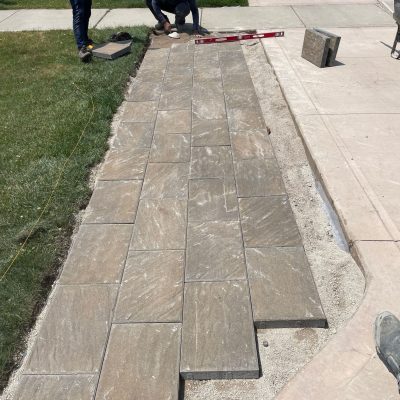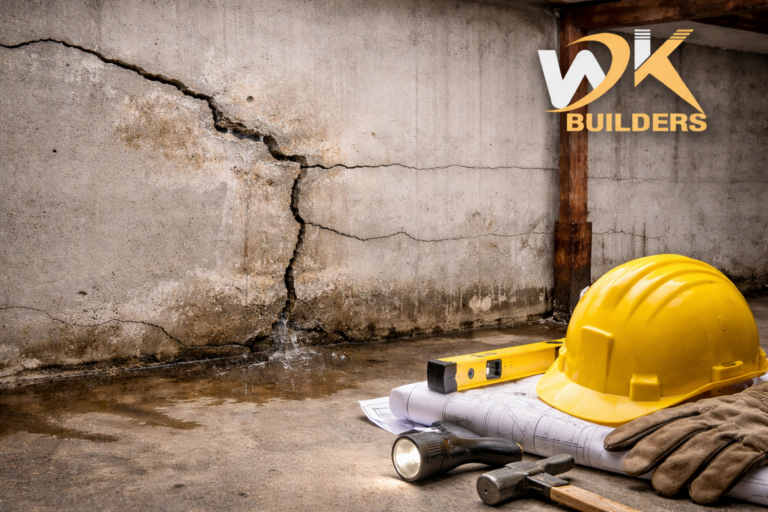Concrete Driveway: Everything You Need To Know (Compared with Tile and Asphalt)
Your driveway is not just a functional element of your home; it’s also a prominent part of your property’s curb appeal. When it comes to choosing the right material for your driveway, concrete, tile and asphalt are three popular options. In this comprehensive guide, we’ll explore everything you need to know about concrete driveways and compare them to tile and asphalt alternatives to help you make an informed choice for your home.
The Versatility and Benefits of Concrete Driveways
Strength and Durability:
- Concrete driveways are known for their exceptional strength and durability. They can withstand heavy vehicle traffic and are less prone to cracking compared to asphalt.
- Properly maintained concrete driveways can last for several decades, providing long-term value.
Design Flexibility:
- Concrete offers extensive design flexibility. It can be stamped, stained, or textured to resemble various materials, including brick, stone, or wood.
- Customization allows you to create a unique and aesthetically pleasing driveway.
Low Maintenance:
- Concrete driveways require minimal maintenance. Regular cleaning and occasional sealing are usually sufficient to keep them in good condition.
- They are resistant to oil stains and can be easily cleaned with household detergents.
Climate Compatibility:
- Concrete driveways perform well in various climates. They are not as affected by extreme temperatures as asphalt, which can become soft in hot weather and brittle in cold conditions.

Comparing Concrete with Tile and Asphalt Driveways
Concrete vs. Tile:
- Cost: Concrete driveways are generally more cost-effective than tile driveways. Tile driveways involve the added expense of purchasing tiles and the labor-intensive installation process.
- Maintenance: Concrete driveways require less maintenance than tile driveways, which can be susceptible to cracks and individual tile replacement.
- Design Options: While both materials offer design versatility, concrete can mimic the appearance of tile without the added cost and complexity.
Concrete vs. Asphalt:
- Durability: Concrete driveways tend to have a longer lifespan and greater durability compared to asphalt. Asphalt driveways may require more frequent resurfacing and repairs.
- Maintenance: Concrete driveways are easier to maintain than asphalt driveways. Concrete is less prone to potholes and cracking.
- Climate Considerations: Concrete is more suitable for areas with extreme temperature fluctuations, whereas asphalt can become damaged in hot weather and develop cracks in cold weather.
- Aesthetics: While both materials can be visually appealing, concrete offers more design options and can enhance your home’s curb appeal.
Factors to Consider When Choosing a Concrete Driveway
-
Design and Aesthetics: Consider the design and style that best complements your home’s architecture and landscape.
-
Budget: Evaluate your budget and compare the costs of concrete, tile, and asphalt to determine the most cost-effective option.
-
Climate: Take into account your local climate conditions, as they can impact the performance and maintenance requirements of your driveway.
-
Maintenance Preference: Consider how much time and effort you’re willing to invest in driveway maintenance.
-
Long-Term Goals: Think about your long-term plans for your property. Concrete driveways can enhance property value and curb appeal.
Conclusion:
Concrete driveways offer a winning combination of strength, durability, design flexibility, and low maintenance. When compared to tile and asphalt, they often stand out as the preferred choice for homeowners seeking a reliable and aesthetically pleasing driveway solution. While each material has its merits, concrete driveways excel in providing a long-lasting and visually appealing addition to your home.


